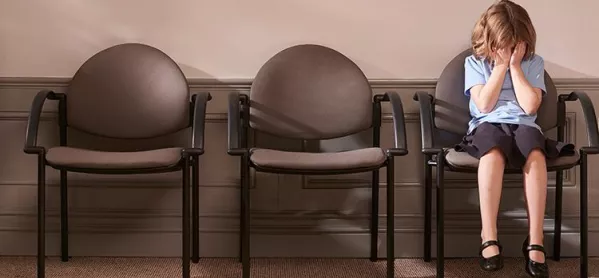A charity has called on schools to include the topic of appearance-related bullying in PSHE lessons amid evidence that most young people have experienced cruel or unpleasant comments about the way they look.
The level of appearance-related bullying has been highlighted by Changing Faces, a charity that supports people who have a visible difference.
It commissioned a survey that involved 1,500 children and young people across the UK, together with in-depth interviews with people who have a visible difference - such as a mark, scar or a condition that makes them look different.
It found that just two in five (39 per cent) of young people surveyed felt confident about their appearance, and one in 10 felt so bad as to be depressed about the way they looked.
The poll also found that appearance-related bullying gets worse as young people move to secondary school - with more than six in 10 teens experiencing negative or nasty comments.
When asked about people with a visible difference, almost half admitted staring at someone they had seen with a visible difference and a quarter admitted that they or someone they knew had pointed at them.
Cruelty towards those who look different
One in six people admitted they or someone they knew had taken a photo of someone with a visible difference.
One in three children and young people (33 per cent) said they felt that people with a visible difference were more likely to be bullied, and just three in 10 said they would like to be friends with someone with a visible difference, according to the findings.
The report was launched to coincide with “Face Equality Day” - which is designed to put the spotlight on the experiences of young people and their experiences of living with a visible difference. The campaign is being led by young people from the charity’s Youth Action Group.
There are 86,000 children of school age in the UK today with a disfigurement. In-depth interviews with young people who have a visible difference revealed some of the negative experiences they are subjected to.
Other recommendations in the report include using images of people with a visible difference in advertising by the media, businesses and government, and a zero-tolerance policy on abuse related to people’s appearances on social media platforms.
The report also calls for a “safe space” where young people can gain support, advice and information online.
Becky Hewitt, chief executive officer at Changing Faces, said: “Every day children and teenagers are bombarded with messages telling them that they need to look a certain way. Magazine covers and social media portray such a narrow view of ‘beauty’, so looking different and having a visible difference in a society that wants you to look the same is tough.
“Reaching children when they’re young, so that they learn to value difference, is so important. Changing Faces wants a world where everyone with a visible difference on their face or body has the confidence, support and opportunity to lead the lives they want.”




